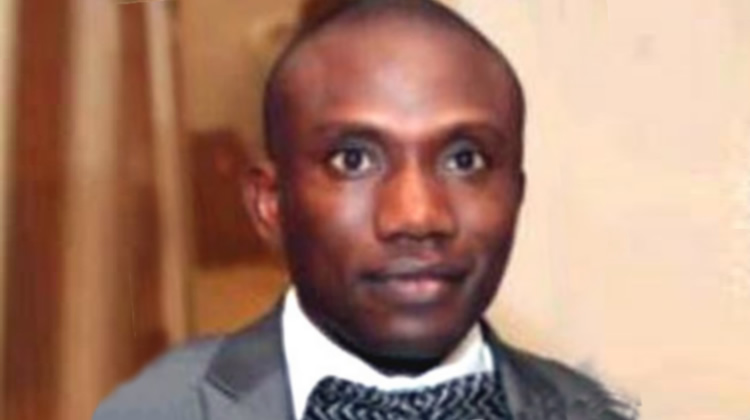
Late arrival of materials and officials, failure of the Bimodal Voter Accreditation System, voter intimidation, electoral clientelism, ethnic profiling, violence, ballot snatching, and widespread allegations of manipulation of results are some of the irregularities.
And in all of this, the Independent National Electoral Commission is the whipping boy. Politicians, observers, citizens, and all causal commentators call INEC out. Some have called for the resignation of INEC Chairman, Prof. Mahmood Yakubu, for his failure to deliver on the promises he made to Nigerians.
It is difficult to fault these calls. Nigerians had high hopes that the 2023 elections would be a watershed in the country’s democracy. In the last eight years, the people have experienced shege, and they saw the elections as the opportunity to turn things around. INEC, with its barrage of technological innovations, assured them that their votes would count. The people went to bed believing INEC, only for the elections to be the very opposite of what they thought. The anger against INEC is, therefore, understandable. But is it all about INEC?
I reckon not. There are, of course, INEC dropped the ball in many ways. The failure of the BVAS during the presidential elections is totally suspicious. How do you conduct three elections and your device fails to upload results to the IREV in only one of the three?
There can be glitches with technology at any time, but shouldn’t a public trust like INEC promptly explain this malfunction and rebuild confidence? But Yakubu’s INEC failed to acknowledge, not to speak or explain, the situation until the next day.
Meanwhile, by 7 p.m. on election day, Yiaga Africa, a civil society organisation, issued a statement expressing concerns about the non-upload of results. Presidential candidate of the Peoples Democratic Party, Alhaji Atiku Abubakar, and the chairman of the Labour Party, Mr Julius Abure, also did. INEC’s failure to communicate its crisis promptly created a crisis of confidence that will continue to haunt the agency. That inaction smacks of a conspiracy. It will be difficult for anyone to extricate INEC from this robe of infidelity.
But that, in my opinion, is the much for which you can blame INEC and its leadership. Beyond the vicarious liability of bearing the responsibilities and compromises of associate and ad hoc staff, this INEC did its best to make 2023 what it promised Nigerians. The many upsets that came with the elections account for this.
For example, it was unthinkable that the All Progressive Congress would lose Lagos State in the presidential elections. Then, consider the fact that the APC lost the presidential election in Plateau and Kaduna states, among others. We should also consider the number of governors who lost their bids to become senators, and ouster of the APC from the Kano Government House last Saturday.
That things went from bad to worse during the state elections on Saturday, despite the improvement in the usage of BVAS and upload of results from the pooling units to IREV, should tell us that this is more than an INEC problem.
It is true that agents of INEC, ad hoc and otherwise, may have played significant roles in the news of massive thumbprinting of ballot papers and other infractions that punctuated these elections, but how is the agency able to test the integrity of every single staff member in its employ? How much control does the Chairman of INEC have over the Resident Electoral Commissioners in states? How does he monitor the conduct of RECs and their staff?The only thing INEC can do to make elections free and fair in Nigeria is put processes in place, but can it enforce these processes across the country?
The answer is no; elections are a multi-sectoral assignment. Having done its part, every electoral body would need the cooperation of many other stakeholders to achieve results.
Most prominent amongst these are politicians and their supporters. The 2023 elections show us that the desperation of the average Nigerian politician is on the increase. This is because politics and government are the most thriving industries in Nigeria, the place where people make so much money in so little time. And when they make money, they are able to buy the conscience of many people. They remain the most powerful in the country. Politicians who are not desperate to get a second term would die to install their stooges as successors. The stakes are too high in Nigerian politics, and people will do anything to attain power.
There are politicians who want to look good with the big man in Abuja or at the state capital. They would do anything to “deliver” their “constituencies.” After the announcement of the presidential election result, a prominent youthful stalwart of the APC made a tweet threatening public and civil servants in Lagos to go out and mobilise for the governorship elections or face dire consequences. You can only speculate about what those consequences can be.
Now, you would imagine that they do this for the love of their community or even the man for whom they are rooting, but no, that is far from it. That local politician desires nothing more than having a seat at the table of the one who sits at the Government House in the state capital or at the Aso Rock Villa in Abuja. To earn the bragging right, which opens the door and provides access to the seat of power, that local politician would hire thugs, bribe electoral officials, hijack electoral materials, or even kill!
Elections should be a celebration of the democratic rights of the people to elect, re-elect, or change their leaders, depending on their individual or party’s performance. But in Nigeria, a few people have turned the country into their feeding bottles. Those ones will do anything to manipulate the process.
Another important stakeholder is the law enforcement agent. How did law enforcement agents look the other way when intimidation and violence dogged Saturday’s election? How is it that someone foretold the violence and intimidation, but we were still caught napping. Why did the police choose to make a joke of it? If the law enforcement agents played their role on Saturday, wouldn’t things have gone much differently.
This reminds me of a comment former President Olusegun Obasanjo made in April 2010. Speaking at the Leon Sullivan dialogue on Nigeria at the National Press Club in Washington, DC, in April 2010, he said that not even Jesus Christ can conduct an undisputed election in Nigeria. Although this remains an outrageous analogy, I do not think Obasanjo meant to blaspheme.The environment perpetrated by the winner-takes-all, cut-throat kind of politics we play, makes things impossible for INEC.
Comments like this by someone who has been part of Nigeria’s unpalatable electoral history, suggest that there are fundamental problems.
The most important of these is pervasive poverty. There are far too many poor people in Nigeria for a country aspiring for democratic growth. The idea that democracy would grow in a country where people cannot tell where their next meal is coming from seems utopian to me. So, politicians capitalise on this to make urchins and thugs out of young Nigerians and make merchandise out of votes.
It is also important to make public institutions work for the people. At the moment, institutions like INEC and the police, when they are not enticed by lucre, pitch their loyalty with the government of the day. This is why, in last Saturday’s election, you see opposition parties complaining about connivance between incumbents and agencies of state. These complaints went around the parties.
In addition, we must build a system where consequences follow the actions and inactions of people. There are laws in this country that deal with all forms of electoral crimes, but do we ever make offenders face the law, if only to deter others? Nigerian leaders must help this country from serving the people rather than their pockets and families.
– Twitter @niranadedokun











